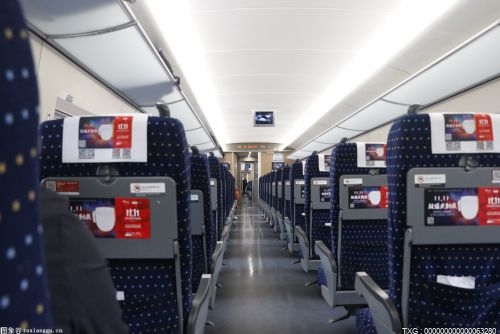2023年,达罗捷派迈入第七个年头,校址由北六环外昌平校区迁至北三环安贞校区。达罗捷派继续怀抱教育初心,努力耕耘着一片教育的理想国。七年来,达罗捷派始终保持“Becoming”的状态,教学教研水平不断精进,教学场地不断升级,引入优质全球教学资源,拓展交流合作项目,为学生提供更个性化的未来发展规划,至此已有三届具有全球化视野的未来人才从这里走向世界的舞台。
现在,我们将带您走进全新出发的达罗捷派,并正式公布2023-2024秋季学年入学招生计划。
欢迎你加入达罗捷派,与我们一起探寻教育的无限可能。
 【资料图】
【资料图】
01 坚持初心的达罗捷派
达罗捷派始终致力于培养适应个人幸福生活、实现终身发展、融入并推动社会进步的【未来公民】,将通用能力的培养融人学科课程,通过项目式学习的教学方式开展基于问题或项目的跨学科学习,实现“以学生为中心”的目标,培养学生主动学习、解决现实生活中真实问题的能力。
地理位置优越,配套设施完善
达罗捷派现位于北三环安华桥,北京中轴线东侧元代城墙遗址旁,紧邻北京奥运村,地理位置优越。
相较于原昌平校区,新校区的校内使用空间扩大,周边设施配套更为完善。
达罗捷派地理位置
达罗捷派实景图
最前沿的课程体系,培养未来世界公民
随着科学技术的发展,人工智能工具正在以前所未有的速度打破认知,促使教育革新,教学技术及方式不断迭代。如今,在信息时代迈向人工智能时代的浪潮中,教育能够带给学生什么成为了值得深思的命题。
JPED教学实景
达罗捷派坚持全人教育,采用CCSS美国高中课程结合PBL项目式学习的创新教育模式。该教学方式将学科知识进行跨学科融合,以项目式学习的方式通过发展适宜性的实验和探索来帮助学生建立理解和解决现实世界问题的框架。截止目前,已获得Cognia国际认证,及College Board颁发的CEEB( College Entrance Examination Board) Code。
达罗捷派基于跨学科的项目式学习(PBL)开展教学,颠覆传统的以教师为主,学生为辅的教与学方式,采取翻转式课堂,将学生作为中心,引导学生提出问题并将所学知识应用到真实情境中。
PBL项目式学习核心标准
从创校以来始终坚持通过PBL实施的深度学习、问题导向式学习、跨学科学习,翻转式学习等教学方式,不仅符合未来教育发展方向,更能够培养出彰显人类优势且能利用好各种工具,参与推进未来社会发展事业的未来人才。值得骄傲的是,达罗捷派独特的教育教学体系,培养学生的好奇心、解决复杂问题的能力、交叉学科学习能力、不同领域知识整合能力、跨文化理解包容、立足地方且面向全球的社会行动和服务能力。
通过在JPED的系统学习,学生们对自我的行为、认知、态度、情感等具有清晰的觉察;成为终身学习者,能够深入地构建自我意义,也能够对于未知事物拥抱探索精神;他们具有创造能力,敢于挑战,持续创新,富有同理心,拥有积极的人生观、价值观;他们拥有强大的协作与组织能力,具备社会责任感,能够推动不同背景的群体共同解决。
培养的过程,便是教育存在的意义。历史的车轮不断前进,但不管世界怎么变化和发展,人类的智慧和人性的光辉在浩瀚星河中一直会闪耀永恒的光彩。我们相信达罗捷派的学生会成为最耀眼的那一道光,成为持续推动自身、家庭、社会和世界前进的那股力量。
毕业生录取成绩优异,奔赴大洋彼岸
我校教学体系得到美国、英国、加拿大、澳大利亚、新西兰、瑞典等多国高等教育系统认可,收获多项国际级和世界级学术竞赛奖项,录取成果亮眼,办学成果显著。
目前,达罗捷派已有两届毕业生,31名毕业生收获来自8个国家共201枚录取。他们从这里启航,到达更加广阔的舞台,去征服属于自己的星辰大海。
达罗捷派毕业生录取数据
达罗捷派毕业生部分录取院校
达罗捷派相信每一个学生都具备或可以培养出通过实际行动去赢得未来的能力,出国留学的目标不仅仅是一封录取通知书,更是拥有面对未知的人生发展所必须的勇气和实力。
教育就是一棵树摇动一棵树,一朵云推动一朵云,一个灵魂唤醒另一个灵魂。希望每一位达罗捷派的学生都能在这里找到适合自己翱翔的那片天空,有能力去抵抗未知的风雨,创造属于自己的世界。
如果您想加入我们,与JPED一起引起波澜,搬动大山,改变生命,请详细阅读达罗捷派2023-2024学年秋季入学申请流程,期待你的加入。
以下内容,可以帮助你轻松获得申请达罗捷派所要了解的信息:
1)达罗捷派2023年秋季招生计划
2)主要申请流程
3)常见Q&A
02招生计划
秋季入学申请计划:
▪招收年级:高中及高中预备班(13-18岁)
▪ 入学时间:2023年9月
录取名额有限,我们将采取择优录取的方式,未被录取以及满员后提交申请的同学会将被放在候补名单上,等候插班补位。
招募同行者:
·我们期待的学生是:
1)敢于挑战,勇于创新,富有同理心;;
2)具备成长型思维,拥有发现问题解决问题的能力;
3)拥有广泛的兴趣爱好,具有主动性,愿意为社区建设贡献力量;
·我们期待的家长是:
1)认同达罗捷派教学理念,与孩子具有良好亲子关系;2)愿意与校方积极沟通、共建,陪伴孩子共同成长;
03 申请流程
04 您可能还想了解更多-Q&A
1.达罗捷派学院所采用的的课程体系和教学方法是什么?达罗捷派采用Common Core State Standards(CCSS)美国教育规划共同核心标准课程体系结合Project Based Learning(PBL)项目式学习的教学方式。开设数学课程,英语课程,STEM课程,人文课程,艺术课程,中文课程以及符合学生个性化发展的多样选修课等学科类目。主修科目均采用英文进行教学。
其中数学、英语两门基础学科根据学生所处年级及能力水平施行分层教学(Level1-6)。
STEM,人文,艺术,中文学科课程按照不同学术能力要求进行阶梯划分,共分为 5 个级别(Level 1-5)。根据每学期设置的Driving Question(关键性问题),将以上学科进行跨学科融合,以项目式学习的方式并通过发展适宜性的实验和探索来帮助学生建立理解和解决现实世界问题的框架。
2.达罗捷派的升学规划是怎样设置的呢?作为一所美式中学,达罗捷派具备专业的升学指导顾问,并将升学指导工作纳入到学校的课程体系当中,让学生在学习和成长的过程中规划自己的未来,并帮助学生做好充分的准备,使得他们不仅能进人理想大学,更能顺利完成学业,并取得未来职业发展的成功。值得一提的是,达罗捷派将学生大学申请所需的活动、实习实践、竞赛等个性化项目均涵盖在学校教学设置中,帮助学生更好的进行个性化匹配。目前两届毕业生的申请简历中90%的活动及个性化项目都是在校内完成。3. 学校具备哪些认证?达罗捷派获得College Board颁发的CEEB( College Entrance Examination Board) Code,并且取得全球最大的学校认证机构Cognia的认证,由达罗捷派颁发的高中毕业证在海外大学申请中与美高毕业证具有同等效力。
Cognia 认证能够支持毕业生畅通无阻地申请除中国大陆外的全球绝大多数国家和地区的大学。CEEB Code 就是美国大学理事会(CEEB)为全球每个符合海外一流教育教学标准的高中提供的唯一试别代码。4.达罗捷派的师生比例是多少?对学生的关注度怎么样?达罗捷派注重学生的个性化培养,强调师生关注度,师生比例为1:5。学校实行导师及年级组长制,作为一种历史悠久的教育制度,导师制度深受世界顶尖大学的青睐,其最大的特点是使师生关系更加密切,教学理念能够更好的培养和塑造人才。本学年开始,达罗捷派增设年级组长他们是教育一线教师,和导师密切配合,通过有针对性的鼓励,持续性的讨论和进度评估来帮助学生取得更长足的进步和成就。5.达罗捷派接受插班生吗?有年级限制吗?春季入学学费如何计算呢?达罗捷派学院按照美国学制分春季和秋季两次入学。春秋两季入学均可申请。春季入学的费用按照占全年学时的比例收取。6.达罗捷派的GPA是怎么计算的?学术课程有排名吗?达罗捷派学院的GPA并不止计算学生的期中或期末考试成绩,而是将学生每一天的学习习惯、学习态度、学习表现等都纳入到评价体系当中,进行个性化且全方位的评定。比如考勤、课堂表现、团队合作、项目成果、作业完成情况、测验成绩、考试成绩等都会计入期末的GPA当中,以促使学生每一天都专注于学业提升,并将所学到的知识和技能在大脑中长期储存。
7.学生现在就读于公立学校,入学达罗捷派英语会不会跟不上呢?我们在笔试和面试的时候会考察学生的英语能力,但是录取考量的是学生的综合实力,不会仅凭英语能力决定是否给予录取。如果获得录取,则说明我们认为该学生英语能力合格,或者可以通过入学前的准备和入学后一段时间的适应即可融入新的学习环境。从任何非全英文教学的学校转学过来的学生,都会经历一个适应和过渡的阶段,全英文的课堂学习是帮助学生提升英语的最佳环境。
8.达罗捷派的师资水平如何?达罗捷派的教师团队平均年龄是33岁,这是个“一切皆有可能”的年龄,活力与沉稳,创新精神与经验累积兼备的年龄。他们当中70%的成员从哈佛大学,哥伦比亚大学,布朗大学,约翰霍普金斯大学,华盛顿大学,昆士兰大学等名校硕士毕业。
9.达罗捷派有哪些课外活动的设置?作为全人培养及全纳课程体系的重要组成部分,达罗捷派个性化活动设置非常丰富,主要分为四类:社区服务、体育活动、社团活动、学术竞赛。1)社区服务:达罗捷派特色教学项目-社区服务(Hands to Work),固定每周三为社区义工服务时间。不同的义工服务活动,帮助学生与外界社会建立良好的链接,树立正确积极的人生观、价值观以及培养学生的同理心。2)体育活动:达罗捷派不仅重视学生的学术知识培养,更注重学生的综合能力提升。体育运动是锻炼学生团队协作能力、团队领导能力、抗压能力、抗挫折能力等最好的渠道。
3)社团活动:学校的所有社团都由学生自发成立,学校和老师给予支持和指导,学生们在每周的社团活动时间可以和志同道合的伙伴一起尽情的发挥自己的特长。4)学术竞赛:每一年,达罗捷派学子都会通过不同学术类别的竞赛,多维度拓展自己的能力,不断探索自己擅长的领域。学校不仅在竞赛选择中根据在校学生的特质与特长进行一一匹配,更为每支战队配备指导教练。通过教师的引导和辅助,引导学生更加全面的对知识进行学习。
在一次次实践中获得更加多元的视角,学会打破学科的界限,拓展学术知识深度,了解更广阔的学术领域。在不断前行中不断更新,在不断更新中持续探索。
10.校方如何跟家长保持沟通和联系?学校和家庭是一对教育共同体,双方要步调一致互相补充,才能为孩子提供更好的教育环境。达罗捷派定期为所有社区内的家长开设升学指导,青春期教育等课题的家长课堂活动。同时学校和PTA(家长委员会)联手定期举办工作坊,家长沙龙,亲子活动,公益活动等家校共建活动。
JPED家长课堂实景图
达罗捷派的全体教学及教学支持部门每两周将会以图文的形式发布最新的校内讯息简报,让社区的每一个成员清晰的了解到最新,最全面的学校的变化及学生的成长情况。
JPED
Newsletter
JPED Newsletter 往期内容片段11.如何保证校园安全和餐饮安全?达罗捷派为寄宿/走读学校,每日三餐均采取自助方式,校内设有厨房,聘请专业团队及营养师为学生提供优质健康且多元化的餐饮服务,不论资质或是菜品质量,均经过严格的审查,并定期回访学生及外教老师的反馈情况,做出及时的调整。教职员工与学生一起在餐厅用餐。学生在学习期间,没有特殊情况不准许单独外出或点外卖。12.达罗捷派是否有暑期项目?达罗捷派的暑期活动非常丰富,主要分为四类:学术项目、实习实践、桥梁课程、全球影响力项目。
1)学术项目:
达罗捷派夏季项目涵盖以下7门课程领域:数学、英⽂、历史、科学、选修、艺术和中⽂。根据学生个体发展需求,暑期提升学术基础,拓展学术知识深度。2)实习实践:
为帮助学生进一步提升学术基础,了解未来职业发展及进行实习实践活动,达罗捷派暑假小学期设置学术提升课程、职业岗位实习活动,并以此修得学分。
3)桥梁课程:
通过暑期Pathway课程,帮助新生快速了解JPED教学模式,通过多样性等体验式学习课程,进行多维度能力提升,并衔接学期学术课程。4)全球影响力项目:我们在每个假期与学生一起共建或选择优质的全球影响力项目,带领学生经历不一样的体验,去开启对改变世界的不同认知,见证青年与世界的改变共同发生。达罗捷派的暑期项目均为学生发起,由师生共同策划。因此是符合校内学生成长需求的个性化定制项目,向在校生和已录取新生开放。13.达罗捷派对于学生的电子设备管理的具体规定是什么呢?达罗捷派所培养的是未来世界公民,电子设备与学生未来的大学生活、职场就业密不可分,良好的电子设备使用能力及自我管理能力的培养对于学生来说是非常重要的;学生在校期间不能使用手机,根据教学需要可使用笔记本电脑、iPad等学习必备的电子设备。
14.达罗捷派是否有奖学金政策?为了培养敢于挑战,持续创新,并富有同理心的未来青年领袖,达罗捷派特别发布“繁星”奖学金计划。如果学生是在学术、体育、艺术、创意创新等方向取得过优异成绩,并致力于突破自我,对社区及社会做出贡献,欢迎申请该奖学金。奖学金将于申请通过后的下一学年生效。
Make WavesMove MountainsChange LivesIt"s2023andJPED is entering its seventh year, we moved from north 6th ring Changping campus to north 3rd ring Anzhen Campus with the goal of continuing to strive for excellence in cultivating an ideal "garden" of education.In the past seven years, JPED Academy has continuously maintained the state of "Becoming", we endeavor and progress to new levels in developing a rich and innovative learning environment.This includes upgradingourschool facilities,exploring and utlizinghigh-qualityeducationalresources, expandingourexchange and cooperation programs, and providing personalized future development plans forourstudents. As a result, there are 3 classes exceptional graduateswith a global vision have emerged from JPED and stepped onto the world stage, capable and ready to succeed.JPED has undergone numerous changes during this recent period, including:
Themove to a bigger campus in Anzhen Beijing, which seerved as a growing and learning experience for students, faculty, staff and even parents.The development ofa more standardized yet practicalimprovement of supporting facilitieswhich werecontributions made by each JPEDer towards the construction ofourcampus. Furthermore,with a focus onteachers" future professional development andcollaborationwith international educationalleaders,our teachersare becoming even more committed to JPED"s educational philosophy.
Now, we will take you into the new journey of JPED and officially announce the application plan for the 2023-2024 fall semester.We happily welcome you to come and explore with us!01JPED upholds its founding principlesJPED has been committed to cultivating "future citizens" who will adapt to personal well-being, achieve lifelong development, and integrate and contribute to the progress of society by integrating the development of generic skills into the disciplinary curriculum, carrying out problem- or project-based interdisciplinary learning through project-based learning, and realizing the goal of "student-centeredness" and training students with the goal of developing their ability to learn actively and solve practical problems.Located in a convenient location with excellent facilities
The Anzhen campus is located on the east side of the central axis of Beijing, next to the Yuan Dynasty city wall, and close to the Beijing Olympic Village and the Anhua Bridge of the North Third Ring Road.Compared to the Changping campus, the new campus boasts more spacious facilities for on-campus use and is surrounded by improved amenities.Geographical Location of Anzhen Campus
Realistic View of Anzhen Campus
The cutting-edge curriculum system has obtained authoritative recognition overseas.As science and technology continue to develop, artificial intelligence tools are rapidly changing the traditional perceptions. This has led to educational innovations and iterations of teaching technologies and methods. In the current wave of the information age transitioning towards the age of artificial intelligence, the role of education in shaping students" futures has become a proposition that deserves deep consideration.
JPED Teaching Scenes
JPED adheres to a holistic education approach and employs an innovative teaching model that combines the CCSS American high school curriculum with PBL project-based learning. This teaching method integrates interdisciplinary knowledge and helps students establish a framework for understanding and solving real-world problems through the development of appropriate experiments and explorations. As of now, the curriculum has been certified by Cognia International and has been awarded the CEEB (College Entrance Examination Board) Code by the College Board.
At JPED, Project-Based Learning (PBL) is extensively integrated into the school"s curriculum, challenging the traditional teacher and student led approaches to teaching and learning. PBL places students at the center of the educational experience, guiding them to apply their knowledge to real-life learning situations. It begins with a meaningful, real-world problem, and students engage in a multi-step process to solve a specific real-life problem.
Core Project-Based Learning Standard
Since JPED was fouding, the school has been implementing deep learning, problem-based learning, interdisciplinary learning, and flipped learning through PBL. These methodologies are not only in line with the future direction of education but also enable the development of future human resources who will be able to use various tools to advance society"s future by showcasing human strengths.
JPED takes pride in its distinctive educational and teaching system, which nurtures curiosity, problem-solving skills, cross-disciplinary learning, integration of knowledge from diverse fields, cross-cultural understanding and tolerance, as well as local-based and globally-oriented social action and service.
Through the systematic learning approach at JPED, students develop a clear awareness of their behavior, cognition, attitude, and emotions. They become lifelong learners who construct their own meaning and embrace the spirit of exploration for the unknown. They acquire the ability to create, dare to challenge, continuously innovate, possess empathy, and have a positive outlook on life and values. Moreover, they develop strong collaborative and organizational skills, along with a sense of social responsibility. They are capable of driving groups of individuals from diverse backgrounds to work together in solving complex problems.
The process of cultivation is the essence and purpose of education.The wheels of history keep moving forward, but no matter how much the world changes and develops, human wisdom and the light of humanity will always shine eternally in the vastness of the stars. We believe that the students of JPED will become the brightest light, the force that continues to drive themselves, their families, society and the world forward.
Excellent Admission Results of JPED Graduates.Currently, ourcurriculum has beenrecognized by higher education systems in many countries such as the United States, the United Kingdom, Canada, Australia, New Zealand, and Sweden, and has won numerous international and world-class academic competition awards. Our admissions results are outstanding, and from such a humble beginning our achievements have been remarkable.Currently, JPED has had two graduating classes, with 31 graduates receiving a total of 201 offers from 8 countries. They set sail from here to reach a broader stage and conquer their own world.
Enrollment data of graduates from JPED
Partial List of Colleges and Universities where JPED Graduates were admitted
JPED believes that every student has the ability to win the future through practical actions. The goal of studying abroad is not just an admission letter, but also the courage and strength to face the unknown in life.Education is like a tree swaying another tree, a cloud pushing another cloud, and a soul awakening another soul. We hope that every JPEDer can find the sky where they can soar here, and have the ability to resist unknown storms and create their own world.If you want to join us, make waves, move mountains, and change lives with JPED, please read the 2023-2024 academic year admission process in detail, and we look forward to welcome you.The following information can help you easily obtain the information you need to apply*JPED 2023 Autumn Enrollment Plan* Main Application Process* Q&A02 Enrollment PlanFall semester enrollment application plan::▪ Enrollment Grade: High School and Preparatory High School (Ages 13-18)▪ Enrollment Date: September 2023Due to limited enrollment quotas, we will adopt a selective admission process. Students who are not admitted or who submit their applications after the quota has been filled will be put on a waiting list.Recruiting Companions:·We are seeking the students:
1)Embrace challenges, exhibit innovation, and demonstrate empathy;
2)Have a growth mindset and the ability to identify and solve problems;
3)Possess a diverse range of interests, take initiative, and are willing to contribute to community building.
·We are seeking the families
1)Share the JPED teaching philosophy and maintain a healthy parent-child relationship with their child;
2)Are willing to actively communicate and collaborate with the school, and accompany their children in their growth journey together.
03 Application Process04 You may also want to know more - Q&A1. What is the curriculum system and teaching method adopted by Jped Academy?
JPED Academy adopts the Common Core State Standards (CCSS) curriculum system wtih the combination of Project-Based Learning (PBL) teaching method. We offer courses in Mathematics, English, STEM, Humanities, Arts, Chinese, and a variety of elective courses that cater to the personalized development of students.The major subjects are taught in English.
For mathematics and English, two fundamental subjects, we implement differentiated instruction (Level 1-6) based on students" grade and ability level.
STEM, Humanities, Arts, and Chinese courses are divided into five levels (Level 1-5) according to different academic ability requirements. Based on the Driven Question set for each semester, these courses are integrated across disciplines, and students use a project-based learning approach and appropriate experiments and explorations to build a framework for understanding and solving real-world problems.
2. How is JPED"s college placement plan?As an American-style middle school, JPED has professional college guidance advisors and incorporates college guidance into its curriculum, allowing students to plan for their future while learning and growing. They help students make adequate preparations so that they can not only enter their desired universities but also successfully complete their studies and achieve success in their future careers.It is worth mentioning that JPED incorporates all the activities, internship practices, competitions, and other personalized projects required for students" college applications into the school"s curriculum, aiming to help students make better personalized matches. Currently, 90% of the activities and personalized projects listed on the application resumes of two graduates were completed on campus.3. What certifications does the school have?
JPED has obtained the CEEB (College Entrance Examination Board) Code issued by the College Board, and has been certified by Cognia, the world"s largest school certification body. The high school diploma issued by JPED has the same effect as the American High School diploma in overseas university applications.Cognia certification can support graduates to apply for universities in most countries and regions in the world except Chinese Mainland.
The CEEB Code is the unique test codeprovided by the United States University Council (CEEB) for each high school in the world that meets the first-class education and teaching standards overseas.
4. What is the student to faculty ratio at JPED? What is the level of attention on individuals?JPED focuses on individualized student development and emphasizes a beneficial relationship between the students and the teachers, with a teacher-student ratio of 1:5.
As a long-established educational system, this mentorship system is advocated by the world"s top universities. Its most important feature is the close relationships formed between teachers and students, and the teaching philosophy which better trains and shape talented individuals. Starting this academic year, JPED has added grade leaders (students) who are the front-line teachers working closely with the mentors to help students achieve greater progress and success through targeted encouragement, ongoing discussions and progress assessments.
5. Does JPED accept transfer students? Are there grade restrictions? How is tuition calculated for spring enrollment?
JPED follows the American education system with two enrollment periods, spring and fall, which are in March and September each year. Applications are accepted for both enrollment periods. The tuition for spring enrollment is calculated based on the proportion of the academic year.
6. How is the GPA calculated at Jped? Are there rankings for academic courses?
The GPA at the JPED is not only based on mid-term or final exam scores, but also takes into account the students" daily study habits, attitudes, and performance, we provide personalized and comprehensive evaluations. For example, attendance, classroom performance, teamwork, project results, homework completion, quiz scores, and test scores are all included in the final GPA to encourage students to focus on academic improvement every day, and to store the knowledge and skills learned in their long-term memory.
7. Will students who are currently enrolled in public schools not be able to keep up with the English language curriculum at JPED?
We will examine the student"s English ability during the written test and interview, but admissions are based on the student"s overall abilities not only depends on their English level. If a student is accepted, we believe that he or she is either proficient in English or will be able to integrate into the new learning environment with some preparations. Students transferring from any school that is not fully English speaking will go through a period of adjustment and transition, with an immersive English environment can best support students to improve their English Language abilities.
8. What is the quality of teaching staff at JPED?The average age of our faculty is 33, the age where "anything is possible", where energy and composure, innovation and experience are combined. 70% of the faculty members at JPED graduated from Harvard, Columbia, Brown, Johns Hopkins, Washington, Queensland, and a handful of other prestigious universities with a master"s degrees.
9.What are the extracurricular activities offered at JPED?As an essential component of holistic education and inclusive curriculum, JPED offers a wide range of individualized activities under four main categories: community service, sports, club activities, and academic competitions.1)Community service:JPED"s special teaching program, Hands to Work, is a community service program held every Wednesday. The different volunteering activities help students to establish a good connection with the outside world, build a correct and positive outlook on life and values, and develop the students" empathy.2) Sports activities:JPED not only pays attention to the cultivation of students" academic knowledge, but also focuses on the improvement of students" overall ability. We believe that sports is the best way to exercise a students" teamwork ability, leadership ability, stress management, and a list of other skills.3) Club activities:Allclubs in the school are set up by the students themselves with the support and guidance from the school and teachers. Students can spend time with like-minded partners and develop their strengths during weekly club activities.4) Academic Competitions :Every year, JPED students explore their areas of expertise through competitions in various academic categories, expanding their abilities in multiple dimensions. The school not only matches students with competitions that align with their attributes and strengths in the selection process, but also provides coaches for each team. Through the guidance and support of teachers, students are guided to learn more comprehensively, enhancing their skills and knowledge.To gain a more diversified perspective through practical experience, learn to break the boundaries of disciplines, expand the depth of academic knowledge, and understand a broader academic field. Continuously make progress in the constant forward movement and explore further in the process of continuous upgrading.10. How does the school keep in touch with parents?
The school and the family are an educational community and both parties need to be in sync in order to provide a better educational environment for the students. JPED offers regular parent classes for all parents in the community on topics such as college guidance and adolescent education. The school and the PTA (Parent-Teacher Association) also works together to organize workshops, parent-child activities, and public service events.
JPED Parenting Workshop Live Scene
The entire teaching and learning support team at JPED publishes a bi-weekly newsletter to keep the community informed of the latest changes in the school and the growths of the students.JPED
Newsletter
JPED Newsletter Past Content Clips
11. How are campus safety and food safety ensured?JPED is a boarding and day school that offers three meals per day in a buffet style. The school has an on-site kitchen and employs a team of professionals and nutritionists to provide quality, healthy, and diverse food services to students. School staff and students eat together in the cafeteria.Students are not allowed to leave the school premises or order food delivery without special circumstances during their studies.12. Is the summer program of JPED only for our students?JPED offers a diverse range of summer activities, which are divided into three main categories: academic programs, practical internships,bridge courses,and global impactprogram.1)Academic Program:The JPED Summer Program covers seven curriculum areas: Mathmatic, English, History, Science, Electives, Arts and Chinese. Based on students" individual developmental needs, the summer program enhances their academic foundation and expands the depth of their knowledge in these subjects.2)Internship Practice:In order to help students further improve their academic foundation, understand their future career development, and engage in internship practice activities, JPED offers academic enhancement courses and career placement internship activities during the summer semester for credit.3)Bridge Courses:Through the summer school Pathway program, we help new students quickly understand the JPED teaching model, engage in multi-dimensional ability enhancement through experiential learning courses such as diversity, and prepare for semester academic courses through articulation activities.4)Global Impact Program:We build or select quality global impact projects with students during each vacation, leading them through a different experience to open up different perceptions of changing the world and witnessing youth and world change happening together.The summer programs are student-initiated and planned by both teachers and students. They are personalized programs open to both current and accepted students. If there are students who are interested in enrolling in the program, they can communicate with the university and a limited number of spots may be available for qualified individuals.13. What are the specific rules for managing students" electronic devices at JPED?Students are expected to be future citizens of the world, and electronic devices are inextricably linked to their future life and career. However, such devices are not allowed on campus so that they can develop the ability to use and manage their own electronic devices without falling victim to addiction.
14. Does JPED have a scholarship policy?JPED has a "Star" scholarship program in order to develop young leaders of tomorrow who are bold, innovative, and empathetic. Students who have achieved excellence in academics, sports, arts, creativity and innovation, and who are committed to pushing themselves and contributing to their communities and society are welcome to apply for this scholarship. The scholarship will be effective the following academic year after the application is approved.JPED has a "Star" scholarship program in order to develop young leaders of tomorrow who are bold, innovative, and empathetic. Students who have achieved excellence in academics, sports, arts, creativity and innovation, and who are committed to pushing themselves and contributing to their communities and society are welcome to apply for this scholarship. The scholarship will be effective the following academic year after the application is approved.
「END」达罗捷派2023年秋季申请已经开启报名!关键词:




















 营业执照公示信息
营业执照公示信息